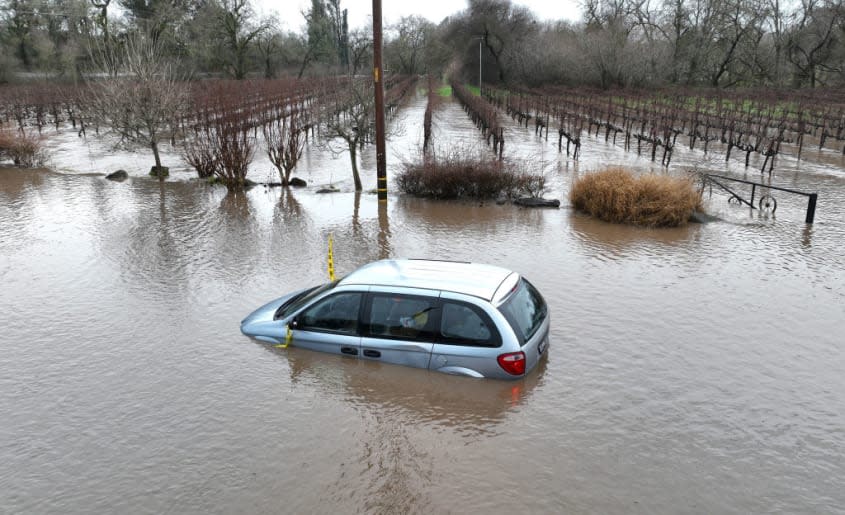Avoid California's waterlogged cars

Here are three of the week's top pieces of financial insight, gathered from around the web:
Ordering quiet quitters back to work
Bosses are on to you, quiet quitters, said Jane Thier in Fortune. Citibank offers flexible schedules, but it's ordering employees "back to their cubicles" if they're unproductive at home. CEO Jane Fraser pointedly noted that they'll get coaching in the office. That sounds like a crackdown on "quiet quitting," or "doing the bare minimum" on the job. Remote-work fans insist there's no "quiet-quitting epidemic." Slack's think tank, Future Forum, surveyed white-collar workers and found that "those with full schedule flexibility showed 29 percent higher productivity scores" than employees with none. But many CEOs are still "bullish on a return to office."
The end of the road for AmazonSmile
Amazon is pulling the plug on its AmazonSmile charity program, said Michael Grothaus in Fast Company. AmazonSmile, which the e-commerce giant launched in 2013, lets a shopper designate a nonprofit to receive a donation equal to 0.5 percent of the customer's purchase. Amazon concluded that, with a million eligible charities, "the impact of the donations were relatively minor and 'often spread too thin.'" AmazonSmile has distributed $500 million overall‚ but the average charity on the list got just $230. The shutdown comes as Amazon is cutting costs in many ways, including through more than 18,000 layoffs, "amid fears of a slowing economy and high inflation." Amazon says it will continue other charitable giving. That's cold comfort to tiny nonprofits, which argue that "even relatively small donations can have a large impact."
Avoid California's waterlogged cars
California is swamped with flood-damaged cars, said Daniel Miller in the Los Angeles Times, and some of them are likely to quietly find their way to the used-auto market. "Hundreds, if not thousands, of vehicles were inundated during the series of rainstorms" that just ripped through the state. Insurance companies will total many of the vehicles. They'll get new titles with "salvage" or "junk" designations and go to auction. Some bidders will use the "drowned derelicts" for their parts. Others with "less than honest intentions" will spruce them up and sell them to unsuspecting buyers at a discount that's typically 40 percent to 70 percent. But some of these musty, waterlogged cars will be "perilously unsafe," particularly if their anti-accident electronics were ruined. "Take a whiff" before you buy. "It's the smell that'll give it away."
This article was first published in the latest issue of The Week magazine. If you want to read more like it, you can try six risk-free issues of the magazine here.
You may also like
Boeing to deliver its final 747 plane, bringing an end to the world's most iconic jet

